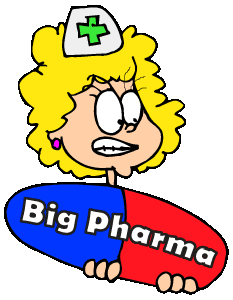Prince Albert, Saskatchewan – March 9, 2017 – Prime Minster Justin Trudeau repeatedly stated he would make 2015 the last federal election using first-past-the-post. Fair Vote Saskatchewan (FVSK) intends to hold him to his promise.
Canada uses first-past-the-post to elect members to the House of Commons. This system works when only two parties are on the ballot. With more than two parties, the winner does not need a majority of votes. Since 1921, Canadian governments have been told that using first-past-the-post is undemocratic.
Trudeau's Electoral Reform Committee (ERRE) heard over 80% of its expert witnesses and open mic speakers endorse proportional representation to make every vote count. In September 2016, the Qu’Appelle Valley Environmental Association (QVEA) presented a brief to the ERRE. It was titled "Protecting Canada's Environment Requires a Voting System Based on Proportional Representation (PR)."
The QVEA brief states that countries with proportional representation are stable and robust. When a coalition government is formed, it is not as easy to lobby for or ram through a particular agenda. For example, in 2012 the Harper government's phony majority easily gutted the Navigable Waters Protection Act.
If the 2011 election had used proportional representation, the seats in the House of Commons would reflect how people voted. The Conservatives would have had 127 seats not 166. The 97 New Democrats, 56 Liberals, 17 Bloc Québécois, and 11 Greens seats could have voted down all or any of the omnibus bills.
The QVEA brief observes, "Environmental protection and ecological sustainability is less likely to be marginalized with [proportional representation], including when it involves a coalition government, than under a government like that of Harper which got majority power from minority support."
Co-chair of QVEA Jim Harding emphasizes, “Prime Minister to be, Trudeau, promised that we’d never again use the slanted, unfair, first-past-the-post voting system. We believed him. The all-party Standing Committee came together as non-partisans and did their work. Thousands of us presented and it became clear that it was time for Canadian democracy to grow-up and adopt a proportional system specifically designed to work for us. Such a system is more likely to bring the issues about which Canadians care, including environmental ones, into mainstream discussions. It would depolarize regional politics and better serve the country moving forward. Perhaps Trudeau wanted another outcome, but the Liberals are now making poor excuses for ignoring what Canadians said. There can be no excuses for Canada maintaining an unfair voting system.”
Co-spokesperson of FVSK Nancy Carswell said, "I had this naïve idea that if I told my MP about an environment issue based in evidence, then they would act. I've realized we don't have government regulated industry but industry regulated government. For example, documents obtained through the Access to Information Act show that the pipeline industry influenced the changes to Navigable Waters Protection Act. The fossil fuel industry wants to hold us hostage. Proportional representation is the best way to free ourselves and foster renewable energy."
FVSK encourages people call their MP daily (
http://www.parl.gc.ca/Parliamentarians/en/members) and/or visit their MP monthly to hold them to their promise of electoral reform that makes every vote count.
Also, Leadnow is running a Vote Better campaign asking people to lobby their MP to be a "Democracy Hero" at
>https://www.votebetter.ca/.
Fair Vote Saskatchewan (FVSK) and the Qu’Appelle
Valley Environmental Association (QVEA) believe that electoral reform with
proportional representation would result in a fairer government and better
environmental protection. As shown here,
although the Liberals could have formed the government in 2015, they would not
have the majority of seats requiring them to collaborate.
FVSK Press Release





